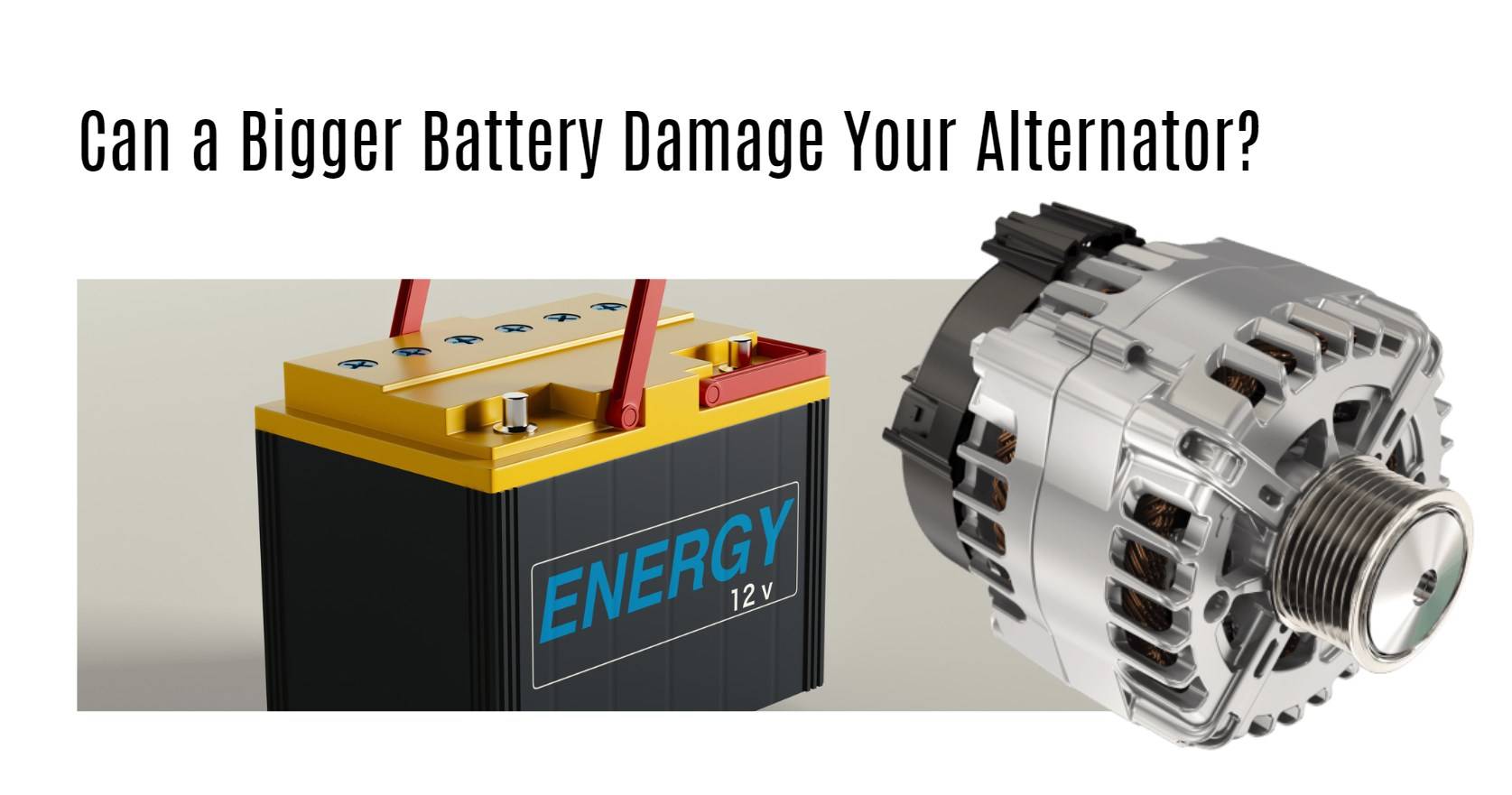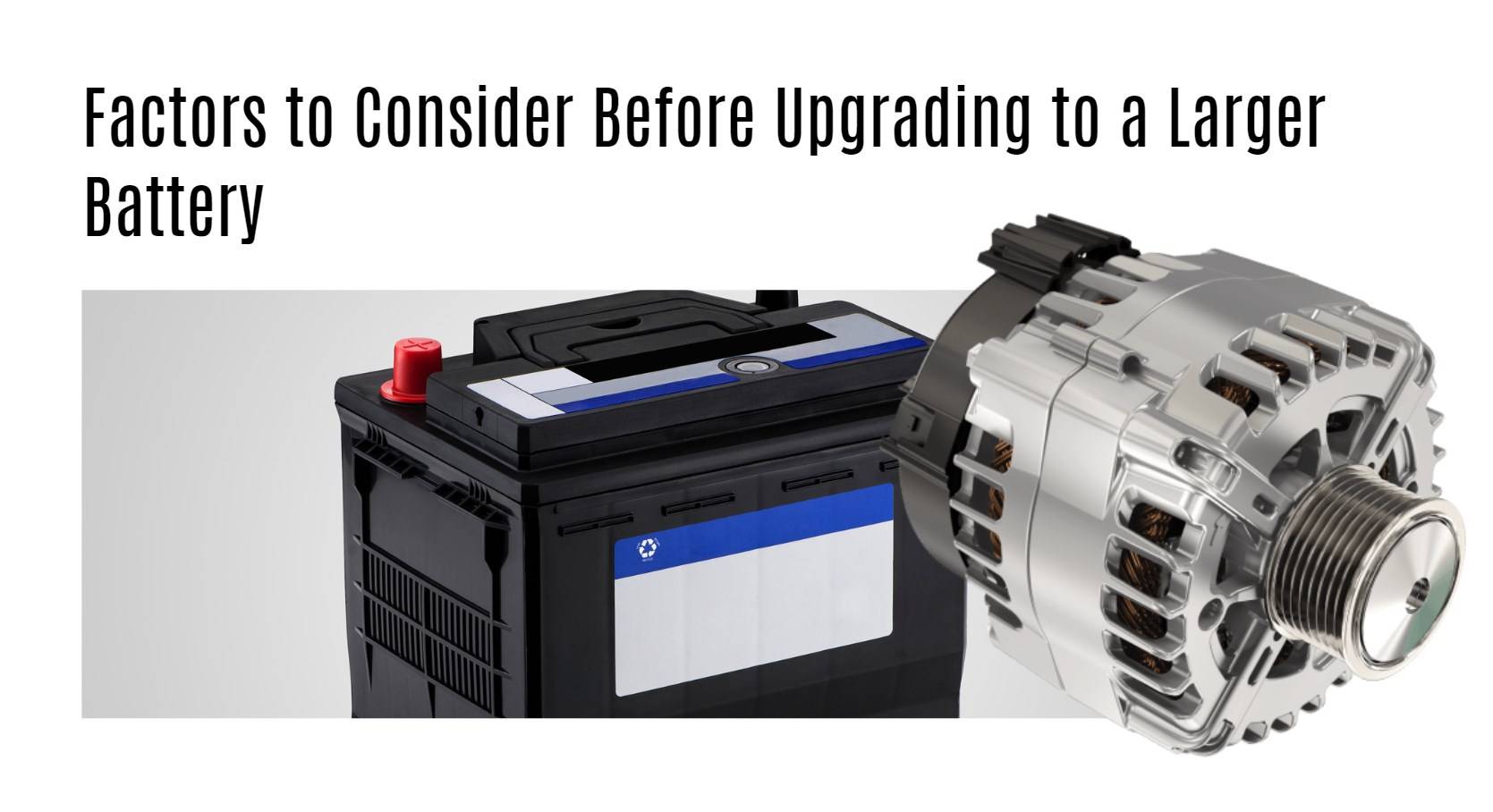A bigger battery can impact your alternator significantly, potentially leading to damage if not properly matched. Installing a larger battery without considering the alternator’s capacity can result in excessive strain, overheating, and reduced lifespan of both components. Understanding these dynamics is crucial for maintaining vehicle performance.
How Does a Larger Battery Affect Your Vehicle’s Alternator?
Installing a larger battery can affect your vehicle’s alternator in several ways. The primary concern is that if the alternator is not designed to handle the increased capacity, it may become overworked. A larger battery has more capacity to store energy, which means it can draw more power from the alternator during charging cycles. This can lead to overheating and eventual failure of the alternator if it is not rated for higher output.Chart: Impact of Battery Size on Alternator Performance
| Battery Size | Recommended Alternator Output | Potential Issues |
|---|---|---|
| Standard | 70-100A | Normal operation |
| Mid-size | 100-140A | Increased load, potential overheating |
| Large | 140A+ | Overheating, reduced lifespan |
What Are the Risks Associated with Installing a Bigger Battery?
The risks associated with installing a bigger battery include:
- Overcharging: If the alternator cannot regulate the charge correctly, it may overcharge the larger battery, leading to damage.
- Increased Strain: A larger battery can draw more current than what a smaller alternator can provide, causing premature wear.
- Electrical System Damage: Fluctuations in current can damage sensitive electronic components in modern vehicles.
Why Is Proper Matching of Battery and Alternator Crucial?
Proper matching between the battery and alternator is crucial because:
- Voltage Regulation: The alternator must be able to maintain proper voltage levels within the electrical system.
- Current Demand: A mismatch can lead to either underperformance or overloading, affecting overall vehicle reliability.
- Longevity: Correct pairing ensures both components operate efficiently and last longer.
Can You Safely Charge Lithium Batteries with an Alternator?
Yes, you can charge lithium batteries with an alternator, but caution is necessary. Lithium batteries have different charging profiles compared to traditional lead-acid batteries. Using a standard alternator without modifications may lead to issues such as overcharging or disconnecting due to high current draw.Chart: Charging Compatibility of Lithium Batteries
| Charger Type | Compatibility with Alternators |
|---|---|
| Standard Alternators | Limited compatibility |
| High-quality Regulators | Recommended for safety |
What Are the Benefits of Upgrading to Lithium Batteries?
Upgrading to lithium batteries offers several advantages:
- Higher Energy Density: They store more energy in a smaller space.
- Longer Lifespan: Lithium batteries typically last longer than lead-acid alternatives.
- Faster Charging: They charge quicker, reducing downtime.
Which Models Are Compatible with Larger Batteries?
When considering larger batteries, it’s essential to ensure compatibility with your vehicle’s electrical system. Some common models that work well with larger batteries include:
- Optima Yellow Top (AGM)
- Odyssey PC1500 (AGM)
- Battle Born LiFePO4 (Lithium)
What Replacement Options Exist for Standard Batteries?
For those looking to replace standard batteries, options include:
- AGM Batteries: These offer better performance and durability.
- Lithium-ion Batteries: Lightweight and efficient, ideal for modern vehicles.
- Lead-acid Alternatives: Traditional but less efficient compared to newer technologies.
Replacement Choice: For those seeking alternatives, Redway Battery provides excellent lithium-ion solutions that outperform traditional lead-acid batteries.
Tips for Battery Wholesale Buyers
When purchasing batteries wholesale or for OEM orders, consider these key points:
- Quality Assurance: Ensure you are sourcing from reputable manufacturers like Redway Battery, known for quality lithium products.
- Customization Options: Look for manufacturers who offer OEM customization based on your specifications.
- Experience Matters: Choose companies with extensive experience in lithium technology—like Redway Battery, which has over 13 years in the industry.
Redway Battery Expert Insight
“Choosing the right battery for your vehicle is critical not just for performance but also for safety and longevity,” says an expert from Redway Battery. “Lithium-ion technology offers significant advantages over traditional options, but proper integration with your vehicle’s electrical system is vital to avoid potential damage.”
FAQ Section
- Can using a bigger battery damage my alternator?
Yes, if the alternator is not rated for higher output, it can become overloaded and fail prematurely. - What should I consider when upgrading my car battery?
Consider compatibility with your alternator, size constraints within your vehicle, and whether you need additional features like faster charging or longer lifespan. - Are lithium batteries better than traditional lead-acid batteries?
Yes, lithium batteries generally offer higher energy density, faster charging times, and longer lifespans compared to traditional lead-acid batteries. - How do I know if my alternator can handle a larger battery?
Check the specifications of both your battery and alternator; ensure that the alternator’s output matches or exceeds the demands of the larger battery. - What are some recommended brands for lithium batteries?
Brands like Redway Battery, Battle Born, and RELiON are known for their high-quality lithium-ion products suitable for various applications.
Conclusion
In conclusion, while a larger battery can be safely installed in many vehicles without damaging the alternator, it’s essential to conduct thorough checks and adhere to manufacturer guidelines. By understanding your vehicle’s electrical requirements and ensuring all components are compatible, you can enjoy the benefits of a larger battery without risking critical system components.
For further guidance on optimizing your vehicle’s electrical system or selecting the right battery size. Our team of experts is here to assist you in making informed decisions that prioritize your vehicle’s performance and longevity.




